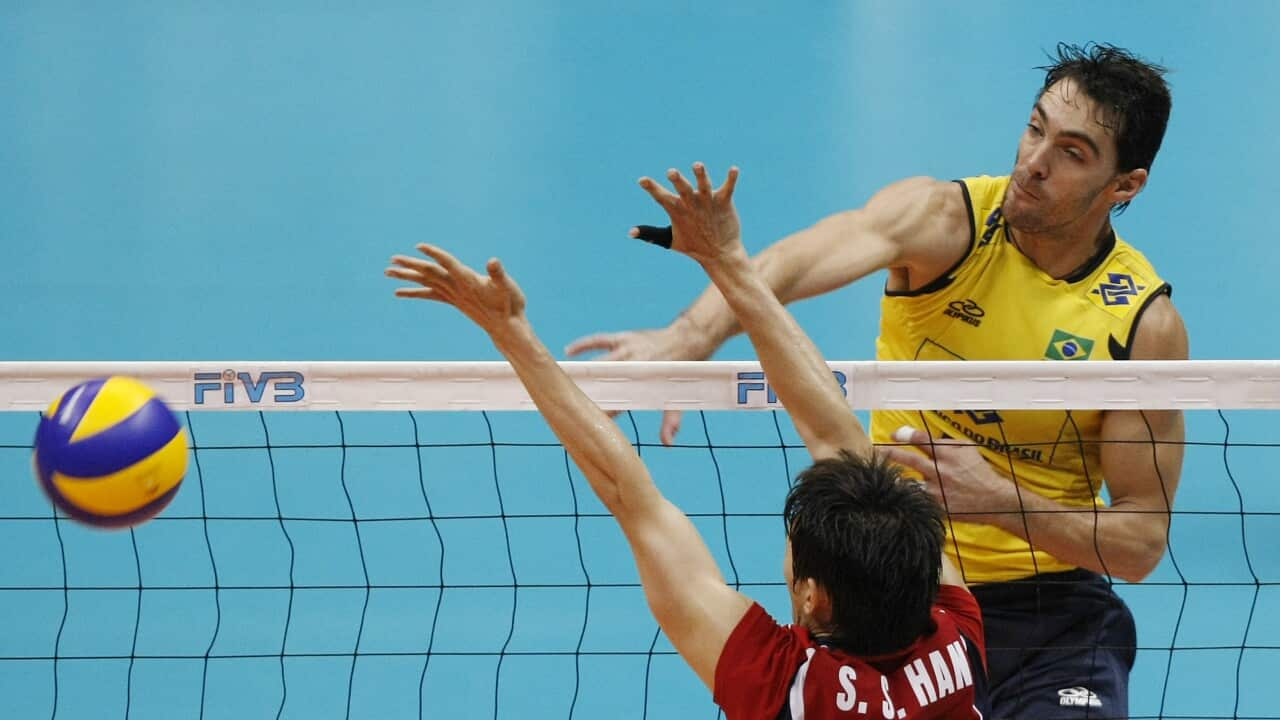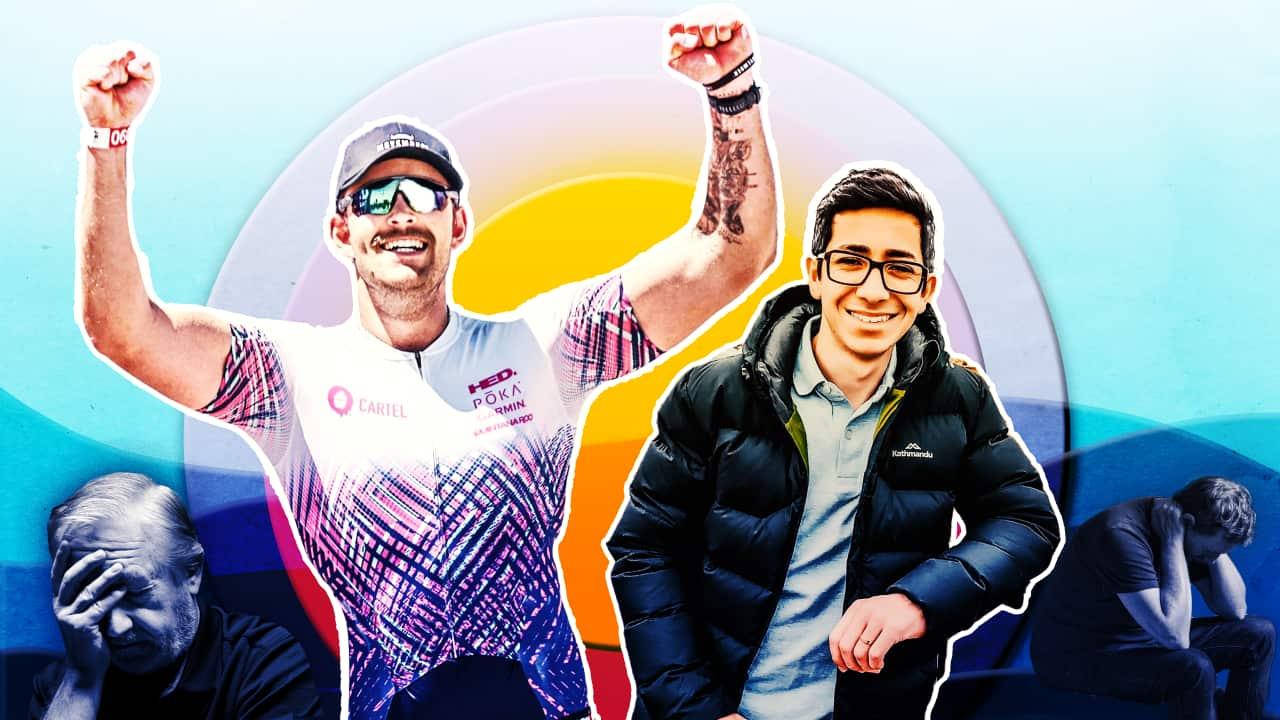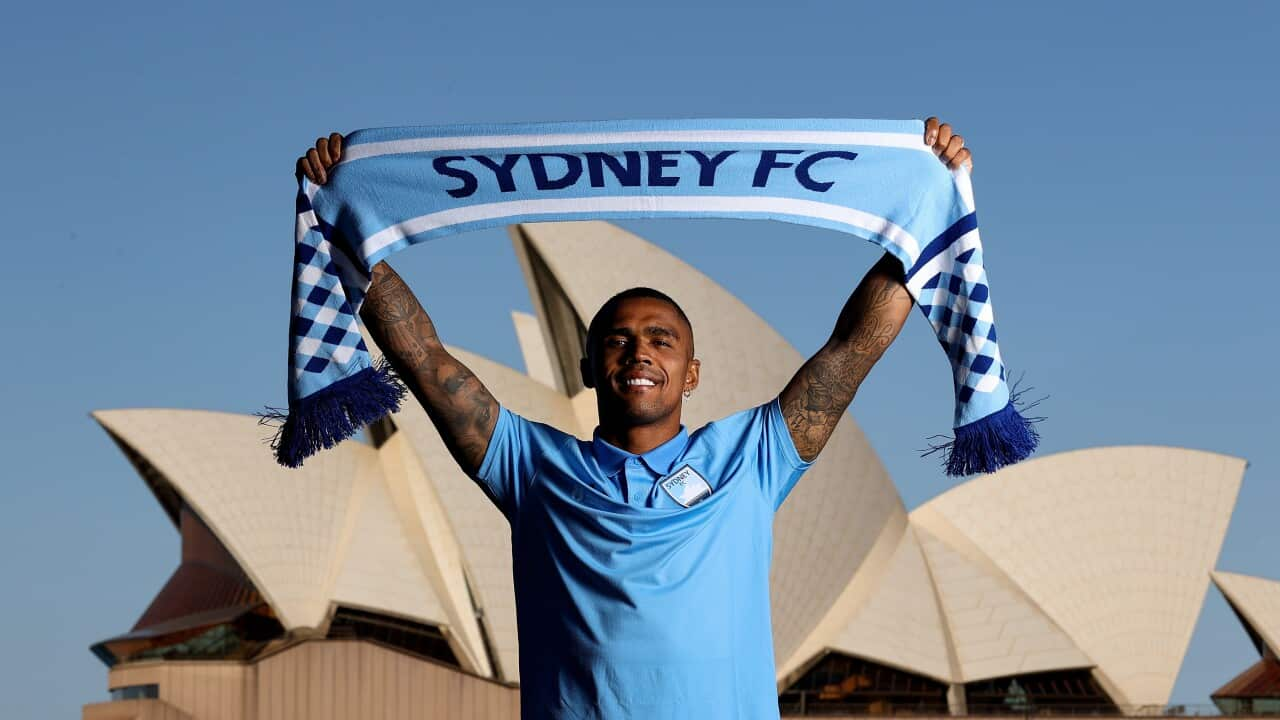Key Points
- Brazilian volleyball Olympians Giba and Mauricio Lima will run volleyball camps for Australian kids this summer.
- The men say they want to raise the profile of the sport Down Under.
- Melbourne man Ricardo Buttini has invited the stars to help run the camps.
Despite excelling in several sports, Australia is not considered a leading nation in volleyball, a sport popular in North America, South America and Europe.
Placed 63rd in the International Volleyball Federation Women’s Volleyball World Ranking and 35th in the Men's, the Aussie green and gold jersey is not a regular at Olympic tournaments - the men’s team qualified for the competition twice, in Athens 2004 and London 2012, after joining the Sydney 2000 competition as the host nation.
Em Português: Ídolos do vôlei mundial, Giba e Maurício a caminho da Austrália
The women’s team only joined an Olympic competition as the host in 2000.

Giba (L) and Mauricio Lima say they believe investment at the 'grassroots' level is a way to guarantee success at the elite level. Credit: Supplied
Mauricio Lima and Gilberto Godoy, known the world over as 'Giba', will hold volleyball camps for young people in Melbourne, Sydney, and Perth between 11 and 22 January.

Setter Mauricio Lima celebrates the Olympic gold medal at Athens 2004 after the final against Italy. He was also an Olympic champion at the 1992 games in Barcelona. Source: AFP / ALEXANDER NEMENOV/AFP via Getty Images
Who are Mauricio Lima and Giba?
Playing as a setter during the 1990s and 2000s, Mr Lima holds two gold Olympic medals, from Barcelona 1992 and Athens 2004.
Mr Lima was also a World Cup champion and four-time World League winner.
Outside hitter, Giba is considered among the world's greatest male players and is part of the Volleyball Hall of Fame.
An Olympic gold medallist in Athens, he has also won the World Championship three times, the World League (eight times), and the World Cup (twice), among other competitions.

Giba (C) among Sidão (L) and Vissoto (R) during a Brazil game at the World League in 2010. Source: AFP / JUAN MABROMATA/AFP via Getty Images
‘Spread the word of volleyball’
Giba and Mr Lima were part of the Brazilian team that played at the Sydney Olympics in 2000. Despite eventually finishing fifth, the pair said they had overall good memories of Australia.
“It’s time to boost the sport (in terms of preparing) athletes for the Olympics in nine years. Those of us who have children know we must plant a seed from now on. I believe the camps will be very good for young Australians and also for Brazilians out there,” Giba said.
Mr Lima said he also believed the camps were a good opportunity to promote the value of sport in general, something praised in Australia.
Everything you learn within the sport is great for you to become a better human being.Mauricio Lima
“It is the formation of your ethos. Regardless of whether you are a high-level athlete like us, we can put all these values into the sport," he said.
"And sport carries these values to any profession. So, we want to show at this camp what benefits sport can bring to human beings, as people, and as citizens."
Brazil, a volleyball powerhouse
Over the past three decades, Brazil has rivalled the US, Russia, Serbia, and Italy as the greatest powerhouse in men’s volleyball competitions.
It also became a reality for the women’s team: two Olympic gold medals (Beijing 2008 and London 2012) and 12 Grand Prix titles.
According to Mr Lima, it all began in the 1980s, when Brazil invested in the grassroots.
“There was a very large investment at the local level. From that, we could bring victorious young people to the next level. Giba is a great example; he was the best in the world in the youth division, and arrived as an adult already with a very successful mind, already knowing how to proceed,” he said.
Learning from mistakes
Giba reflected on the role of management in the success of the sport, but said that Brazil youth teams were no longer getting results.
What had gone wrong?
”Management does win games; all the work at the Brazilian volleyball grassroots investment was a management decision,” he said.
“Now, we haven't seen remarkable results anymore in the youth competitions for Brazil, and that is likely to reflect on the professional level in the next couple of years. What we hope to show in Australia is that we still have time, (nine) years to help you not repeat the recent Brazilian mistakes."
The man bringing volleyball to Australia
The players will visit Australia thanks to a Brazilian physical education professional residing in Melbourne who is passionate about volleyball. His name is Ricardo Buttini.

Brazilian physical educator, Ricardo Buttini, based in Melbourne, plans to develop volleyball in the country. Credit: Supplied
“But then I moved to a school that had volleyball lessons. The head coach invited me to train the team for the best volleyball league in Victoria.
“Working with volleyball here, I realised there’s a huge gap between volleyball in Brazil and in Australia. And I’m trying to enhance this sport here.”
He said his first step had been to create his non-profit volleyball club, now called the Volleyball Institute of Performance (VIP), to promote the sport first in Victoria, and then to the rest of Australia.
Mr Buttini said he wanted to ease the financial pressures on parents nurturing young sporting talent.
“I want good players to stop paying to practise, which is very common in Australia," he said.
If the young talent thrives, he or she joins higher leagues, and the family has to afford higher prices, until you get to the professional level. I would like to do it differently.Ricardo Buttini




